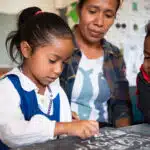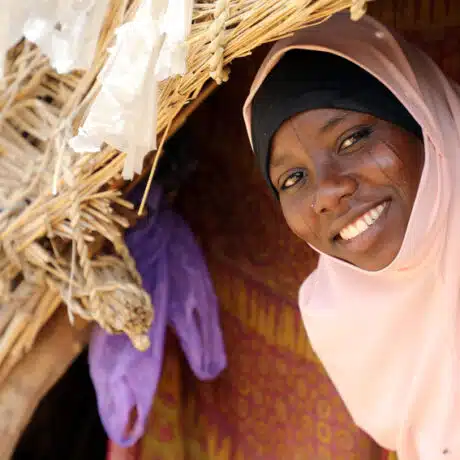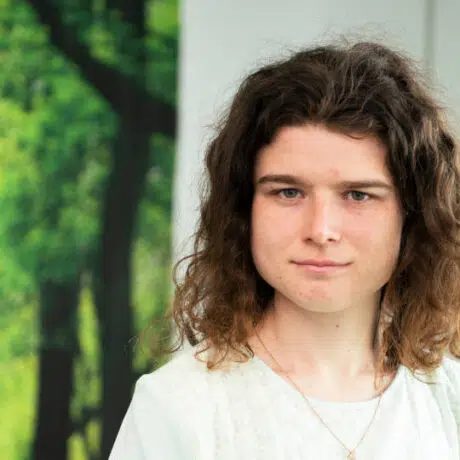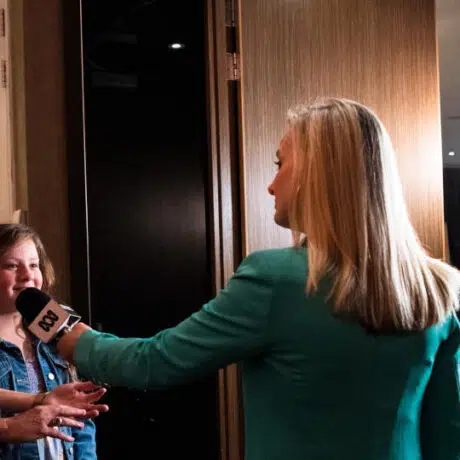News and Stories - Girls Rights - 14 September 2020
A Voice for Equality
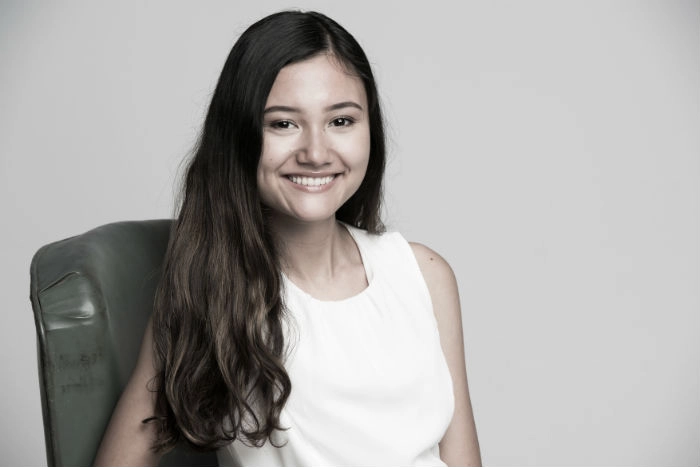
Meet our new ambassador, Yasmin Poole
We are thrilled to welcome youth advocate and proud intersectional feminist Yasmin Poole as our newest ambassador!
Yasmin’s journey with Plan International began in 2018, when she joined our Youth Activist Series (YAS), and she is now among Australia’s AFR Top 100 Most Influential Women. Focussing on the power of youth and why diversity is necessary to ignite social change, she is a strong voice for the rights of young people and equality for girls. To help you get to know Yasmin a little better, we asked her some quick questions!
Can you please tell us a little bit about yourself?
I’m a youth advocate, writer and public speaker, with a focus on the role of intersectionality in social change. I’m currently a Non-Executive Board Director of OzHarvest, Australia’s leading food rescue charity, and often represent the voices of young people across Australian media. I’m particularly passionate about challenging conventional understandings of leadership and creating a political future that involves the voices of young women. It’s been a crazy journey so far, but a deeply rewarding one!
How did you first cross paths with Plan International Australia?
I’ve been involved with Plan International since 2018 through their Youth Activist series. Through that program, I ended up writing my first op-ed called ‘Young women are turning off a career in politics, but we can fix this’. I look at that time with a lot of gratitude and fondness. Plan International played a really formative role in helping me shape the platform that I have today.
What is it about Plan International Australia’s work and purpose that resonates with you?
One of the best things about Plan International is that it centres the voices of young women. In society, young women remain underrepresented and often unheard. There’s a lot of power in recognising these stories and giving youth the space to consider what they want to see changed. That sense of agency creates leadership. It’s the first real step to creating a world where young women at the decision-making table is the norm and not the exception.
How has your upbringing shaped the way you view the world?
There are three things from my childhood that have impacted me: coming from a low-income background, having a migrant mother and being Asian-Australian. I’ve felt or witnessed discrimination across all of those factors and it was often a disempowering experience growing up. But that sense of difference has played a major part in how I contextualise my purpose and work. I’m always asking, ‘whose voices are missing? Who should be here, but can’t?’ I don’t think I’ll ever stop asking that question.
You’re currently studying International Relations and Law — what inspired you to pursue this path?
I didn’t have a clear path in mind, but I did have a deep interest in social justice and curiosity about politics. I never would have expected to be doing the work I’m doing now! What I love about my degree is that it helps me look beyond the surface. Law appears neutral on its face, but it often impacts men and women differently. The same can be applied to politics and policy. If we want to address gender equality, we need to use a gender lens and have gender equal leadership. We always need to think about underlying bias and assumptions.
You’ve been very active in advocating for women’s participation in politics – why are their voices and presence in this space so important?
Politics is a necessary tool for change. Women continue to face systemic barriers in Australia. COVID-19 clearly demonstrated this: women take on the lion’s share of unpaid household duties and the gender pay gap remains firmly embedded across the board. There are many ways to address this problem, including a gender-responsive budget and free childcare. We need more female politicians to raise these issues, but also play a role in creating future thinking, feminist solutions. Parliament captures who holds power in society. If we want to create better outcomes for women, it must be gender equal.
As a young woman in the public sphere, what is one challenge you’ve you faced, and how did you overcome it?
Being in the public eye was intimidating. At the beginning, I often felt too young and under-qualified to speak about my experiences. But I’ve realised that my platform extends beyond me – it represents young women that so often don’t get the chance to be heard. I find great peace in that responsibility. It helps me to focus on my message, without apology or fear.
In your opinion, what is the most pressing issue facing young people today, and what role do young people have in finding a solution?
Uncertainty about the future. It’s a catch all issue, but it’s true. The nature of work is changing. Our climate is changing. Our politics is becoming more divided. Uncertainty lies at the heart of these problems – we realise they’re problems, yet Australia lacks a road-map to address them. Young people need to play a role in shaping that path. There’s power in youth; we’re open minded, risk taking, innovative, compassionate. These are all powerful qualities to have when shaping Australia’s future.
What advice would you give to girls and young women who want to have their voices heard?
Speak your truth – even if your voice shakes.
If you could send a message to your younger self, what is the one thing she needs to hear?
Tell your story with pride. Pursue your passions with heart. The rest will follow.
Will you join the movement fighting for girls’ rights?
Whether that is signing a petition or emailing your MP, we’ll let you know what you can do to stand with girls and make real change.

